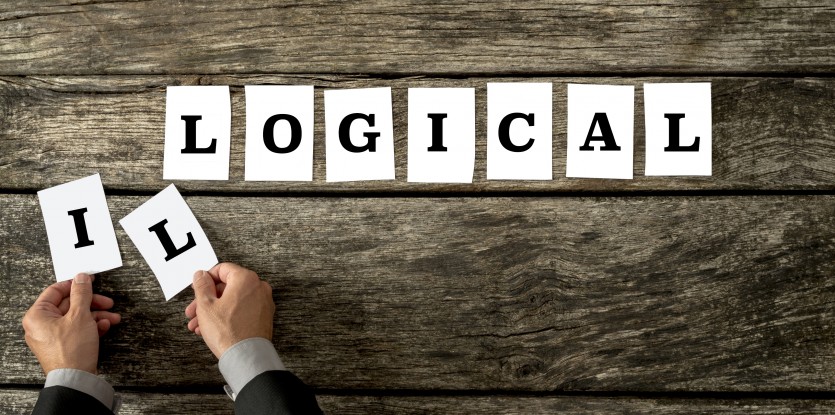Seeing the Cracks in our Existing Systems
Karl Popper, the Austrian-British philosopher of science, writes that “Science is not a system of certain, or well-established, statements; nor is it a system which steadily advances towards a state of finality. Our science is not knowledge: it can never claim to have attained truth, or even a substitute for it….We do not know: we can only guess. And our guesses are guided by the unscientific, the metaphysical (though biologically explicable) faith in laws, in regularities we can uncover/discover…The old scientific ideal of episteme—of absolutely certain, demonstrable knowledge—has proved to be an idol. The demand for scientific objectivity makes it inevitable that every scientific statement must remain tentative for ever….”
The physicist, Werner Heisenberg showed that in physics laws are at best probabilities. And the great mathematician, Kurt Goedel demonstrated the same in mathematics. In his famous Goedel’s Theorem he proves that there exist meaningful mathematical statements that are neither provable nor disprovable, now or ever. That is, not simply because human thought or knowledge is insufficiently advanced but because the very nature of logic renders them incapable of resolution, no matter how long the human race survives or how wise it becomes. “No axiomatic system containing arithmetic can demonstrate its own consistency, so we can never know for sure whether our system is consistent. Any such system must have true statements which are unprovable within the system.”
You may be surprised, but this principle – that logic is built on supralogical axioms – is stated in this week’s Torah portion. What is even more surprising is that the Torah teaches us this invaluable wisdom with the addition of one single letter.
This week’s chapter, Mishpatim, begins with G-d’s words to Moses: “And these are the laws that you shall put before them.” The Midrash (oral interpretation of Torah) – cited by the classical Torah commentator, Rashi – explains the addition of “and (these are the laws).” Wherever it says “V’eileh” (“and these” – in Hebrew the letter vov at the beginning of a word means “and”), the word comes to add to that which was before. “And these are the laws” teach us that just as the first ones [the Ten Commandments] were received at Sinai, so too are these laws from Sinai.
What is the significance of this addition? Why would we think that these laws were not given at Sinai that the Torah needs to emphasize it with the additional vov (‘and’)?
Because “mishpatim” (the word used here for ‘laws’) refers to the Torah’s rational and logical laws. The argument could be made that religious law needs to be received from Sinai, but rational laws can be initiated by man. Tells us the Torah: No! The foundation of logic is the supralogical (Sinai).
One letter in the Torah – one and only one letter vov – tells us what the brilliant thinkers, Popper, Heisenberg, Goedel concluded thousands of years later…
The logical fact is that true logic is built on the supralogical. Now the supralogical is not the same as illogical. The illogical is beneath logic – plain stupidity. Supralogical is above logic, preceding logic. The most logical thing of all is that something precedes logic.
Why is that the case? Because there is no true absolute basis for morality if it is created and driven by human logic alone. Anything created by human logic can be destroyed or altered by the same logic. If morality is based on consensus and basic human freedoms granted to us by man-made institutions, those same men can decide to retract those freedoms. “All men are created equal” the American Founding Fathers declared, because they knew that if the freedom does not come from the Creator, then it cannot be inalienable. If King George granted them freedom, than he can choose to take it from them as well.
Now if logic itself is built on supralogical axioms, why then are we so mesmerized by logic?
The answer is: We aren’t. We fake it.
Love, mistakes, passions, all our vices, music, romance, magic — are all driven by forces that are beyond the logical.
Why is it then, when it comes to G-d so many people become so very logical? They demand rational or empirical proof for G-d’s existence?
I always wondered why I resisted the organization argument when it came to proving the existence of G-d. The argument goes like this: Anything organized directs us to someone that created that organization. A building points to an architect. A book to an author. A sonnet to a composer. How much more so does our universe – which is infinitely more organized than anything in existence – point to a Creator, a cosmic engineer that put it all in place.
Why do so many people reject this argument which seems to be as good a proof as any in science?
Answer:
We don’t reject the argument. We reject its conclusion, its consequences. G-d implies personal responsibility. If G-d exists that means that I may be responsible for my behavior – responsible and accountable to G-d and to others.
Suddenly, we become highly logical…
Most of our choices and activities are not determined by logic alone. Yet, when it comes to G-d we become enamored by logic.
Is it possible that entire generations of thinkers have denied G-d’s existence and built philosophies and social systems based on their beliefs – all in order to conveniently avoid the personal responsibility that G-d demands of us?
If that is true, what does that say about our political and economic structures? What kind of security can we expect from a world that is built on a logic that denies its supralogical axiomatic source?
And while we’re at it (asking some difficult questions), I might as well add: How often do we use logic to smokescreen our real intentions? To hide irrational and irresponsible behavior behind rational excuses?
What has all this to do with our times? Plenty.
The last decade has exposed the vulnerability of our fragile world. Global upheavals — from political chaos and an unprecedented pandemic, to the rise of extremist terrorism, to our tottering institutions — have shattered the illusion of our invulnerability. Notwithstanding our abundance of prosperity, technology, military might and material successes, many are questioning the very viability of our cherished systems. the 21st century has been witness to a deterioration of trust and confidence in leaders, government and business. And more upheaval is sure to come.
With our man-made logical systems and institutions under attack, with our security under question and all the uncertainty brewing – the vov that begins our Torah portion (“v’eileh”) looms larger than ever. Our man made logical structures have wandered away from Sinai. They need to reconnect to the mission statement given at Sinai and reinstated by our Founding Fathers: In G-d We Trust. One Nation Under G-d.
In an insane world like ours, where innocent suffer and wicked prosper, a world full of contradictions and paradoxes – we can take comfort in knowing that the insanity is a result of a logical system refusing to acknowledge its supralogical Creator. If we cannot sense that G-d is the true reality of all of existence, and we have the ability to resist it because it makes us uncomfortable – then it surely makes more sense that our world be insane than sane.
True sanity means embracing the world beyond logic.
So let’s do something not logical together: Let us defy all the fear and insecurity around us by passionately embracing our absolute foundation of faith in G-d. Let us crawl out of our comfort zones and shake up the world a little – with a revolution of goodness. For every negative thought you have, counter it with two positive actions. As we witness wild behavior of different sorts, let it inspire us to go beyond our own norms of kindness. Instead of doing the logical thing – being overwhelmed by all the uncertainty, or battling fire with fire, let us transcend our logic and just become better people.
It may be the most logical thing we have ever done.








“…from the rise of extremist terrorism, to our tottering institutions — have shattered the illusion of our invulnerability. Notwithstanding our unprecedented prosperity, technology, military might and material successes, many are questioning the very viability of our cherished systems. the 21st century has been witness to a deterioration of trust and confidence in leaders, government and business. And more upheaval is sure to come.”
Karl Popper also said something quite logical, cogent and fundamental to understanding the basis of our systems and why they deteriorate. “Unlimited tolerance must lead to the disappearance of tolerance. If we extend unlimited tolerance even to those who are intolerant, if we are not prepared to defend a tolerant society… then the tolerant will be destroyed, and tolerance with them… We should therefore claim, in the name of tolerance, the right not to tolerate the intolerant.”
Islam is utterly a supremicist political/religious dictate of conquest and intolerance.
Now…. that said, and not to be merely pedantic, if we understand that this is in fact logically factual and true, and if we consider that all utopianism leads to tyranny, then we can understand that the tyranny of Islam and progressivisms explain the political correctness of one, that supports to terrorism of the other.
Logic is not logical in a complete sense because we find in our world that a lot of it functions through two opposing tendencies. In my thinking and work on macroeconomics I find for example that (like Newton’s laws of action and action being equal but opposite), demand and supply are dual but work together. A better example is our desires for goods and services which is unending yet we seek to obtain them with the least possible effort. Only when we have accepted that the duality of living is truly applicable can we manage to properly understand the way that our lives are arranged which is not within our complete control. So it is by a combination of logic along with non-logic that we get by.
Incidentally, the claim that “all men are created equal” is nothing like the whole situation, because we all have different abilities and failings. We need to recognize and to substitute this claim for the more practical one that we should all have equal opportunities to be active and successful in what we seek to achieve. This is clearly not what happens these days, due to the unjust sharing of access rights to natural resources, and it requires some better ways for us to be more justly governed.